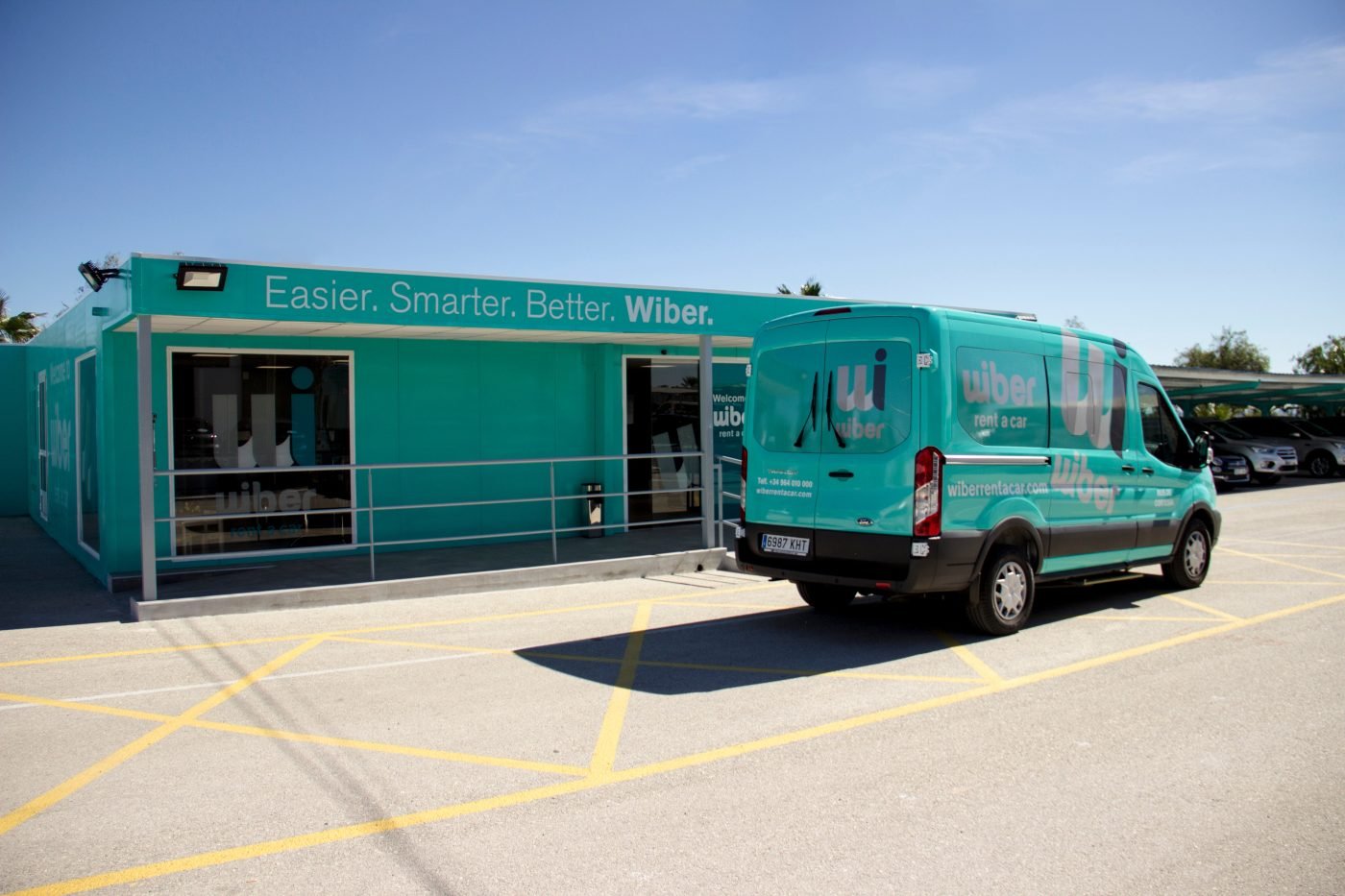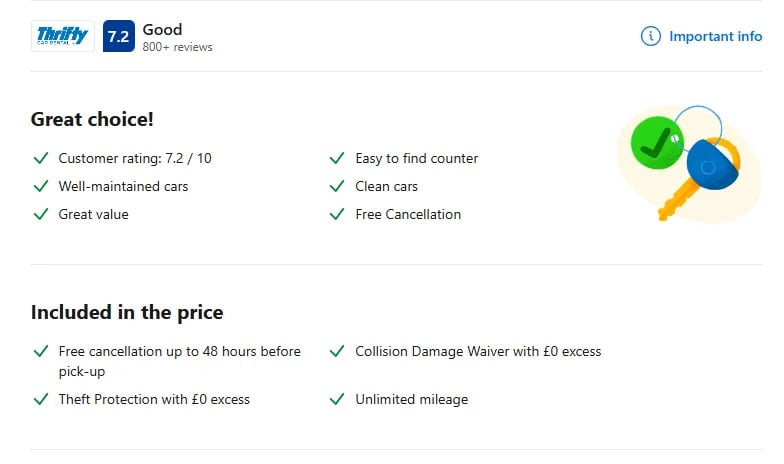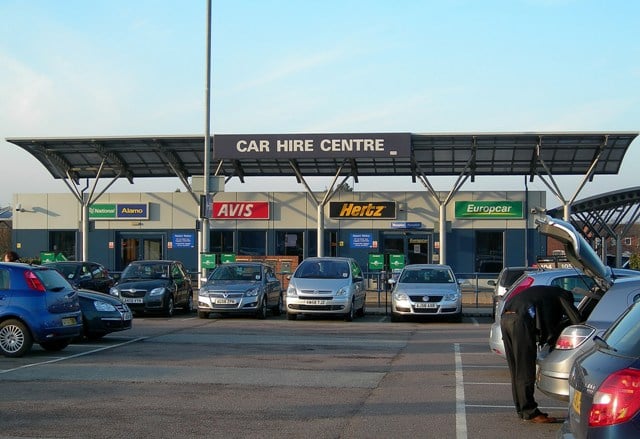We landed, grabbed the bags, and rolled over to the Wiber counter. The Opel they had waiting for us looked like it had been flogged up and down the island a dozen times before. But the real sting wasn’t the condition of the car. It was the insurance.
“Your Booking.com policy is useless,” the staff member said. Straight-faced. Our options? Roll the dice with a thousand euro excess or fork out another $150 for four days of so-called peace of mind. We already had cover. We paid anyway.
That’s the rental game in a nutshell. You walk in thinking you’re paying for a car. What you’re really paying for is the privilege of being pressured into insurance you almost certainly don’t need.
It isn’t just Spain. In the UK, Europcar tried the same trick. They wanted $1,500 for eight days of insurance. Yes, you read that right. More than double the cost of the actual rental. The sales pitch was polished. The words were calm but the intent was sharp. Refuse and you’re irresponsible. Refuse and you’re asking for trouble.

Most travellers don’t realise they’re already covered. Pay with the right credit card and you might have excess cover built in. Many travel insurance policies offer it too.
In Australia, plenty of comprehensive car insurance plans extend to rentals. But at the counter you’re told that doesn’t count. And when you’re standing in line with kids, luggage and a flight hangover, it’s easier to cave than argue.
The alternative is to buy third-party cover ahead of time. Booking.com will happily sell you insurance at checkout, usually for a fraction of what the rental desk wants. But here’s the catch: it’s reimbursement-based. You pay the rental company first, then claim it back.

On paper it’s fine. In practice it’s slow, bureaucratic, and often painful. Reviews are full of horror stories — months of waiting, endless emails, and insurers looking for loopholes.
Rental companies hate it because it cuts them out of their most lucrative revenue stream. They don’t make their margin on the daily rate. They make it on the extras. Insurance is the goldmine. A $20-a-day waiver costs them virtually nothing but can double the booking value.
So they push back. They tell you your policy won’t work. They warn you about massive pre-authorisations. They hint at hidden exclusions. It’s all part of the theatre. Scare the customer, sow doubt, and make them pay again.
Curated news for men,
delivered to your inbox.
Join the DMARGE newsletter — Be the first to receive the latest news and exclusive stories on style, travel, luxury, cars, and watches. Straight to your inbox.
If you already have cover, you don’t need theirs. The only real difference is convenience. If you buy the desk insurance and scratch the car, you toss the keys back and walk away. No forms. No claims. With third-party cover, you pay first, then chase reimbursement. It’s hassle, not risk.
That’s why people fold. In Majorca, we folded. We insured a €25-a-day Opel for more than it was worth. In the UK, we nearly folded to Europcar’s $1,500 guilt-trip special. That’s how they win. They lean on psychology.

The reviews say it all. Happy customers are the ones who bought the in-house cover. Furious customers are the ones who didn’t. One-star complaints of deposits held for weeks. Scratches billed that were already there. Claims dismissed as “wear and tear.” Refunds dragged out long after the trip ended. It’s not a handful of bad actors. It’s the playbook.
So what do you do? You don’t have to accept being rinsed. There are rules that make the process less painful, even if the system is designed to catch you out.
Do’s and Don’ts of Rental Car Insurance
Do know your cover before you travel. Check your credit card perks. Check your travel insurance. Check your home car insurance if you’re Australian. Print it out and bring it with you.
Do photograph/video everything. Every dent, scratch, and curb rash. Tyres, windscreens, bumpers. Leave nothing undocumented. If you get billed later, you’ll be glad you did.
Do budget for the excess hold. If you say no to their cover, your card will often be pre-authorised for €1,000–€2,500. Make sure you can handle it.
Do stand firm. Staff will try to intimidate you. Be polite but confident. If you know your cover, don’t let them shake you.
Don’t assume third-party cover means zero stress. If you damage the car, you’ll still be out of pocket until your claim clears. Decide if you want that fight.
Don’t rush the paperwork. Take your time during pick-up and drop-off. Document mileage, fuel levels, and the condition report. It feels pedantic. It saves you money.
Don’t fall for the guilt trip. The counter rep doesn’t care about your safety. They care about their commission. Treat it like sales, not advice.
Don’t wait until the last second. If you plan to use third-party cover, book it before you fly. It’s cheaper, cleaner, and you won’t have to argue in broken English at the desk.
The lesson here isn’t that all insurance is useless. There are times when extra cover makes sense. Driving in countries with chaotic roads, corrupt cops, or murky legal systems is one. If you’re in Albania or Argentina, it’s probably smart to pay up. But on a summer holiday in Spain or a business trip in London? You’re usually just buying convenience.
Car rental insurance isn’t always a scam. But the way it’s sold? That’s the scam. It preys on tired travellers, pressures them into unnecessary add-ons, and makes them feel reckless for saying no.
My advice is simple. Shop around. Arrive armed with the facts. And don’t let a clerk guilt you into paying more to insure a car that probably isn’t even worth the premium.
Because the truth is, the only ride that really matters is the one you take once you’ve walked away from the desk.


